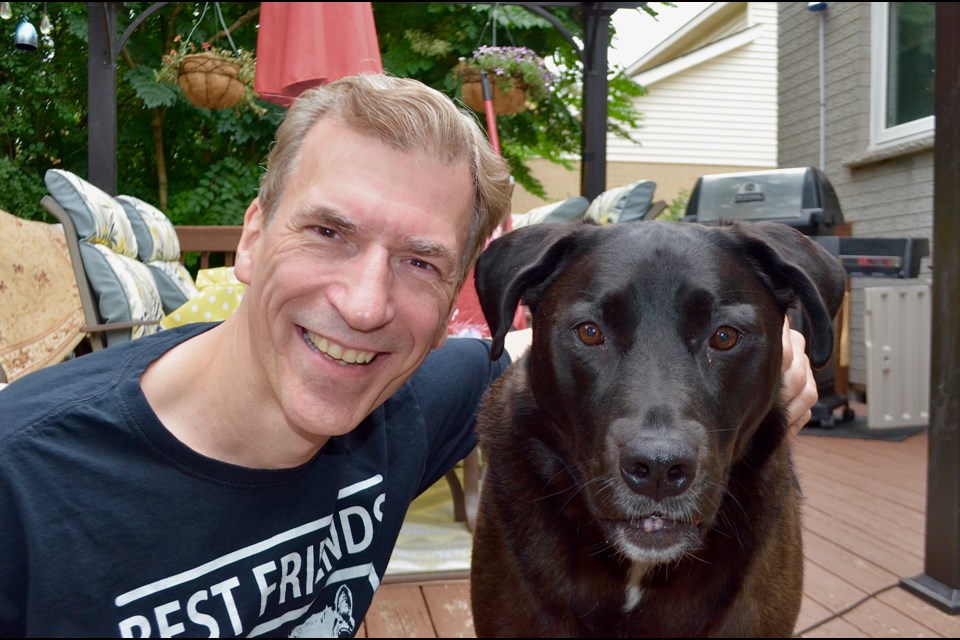There is nothing new about conspiracy theories. They have existed in one form or another since the dawn of civilization, but they are gaining fertile new ground on social media and have even taken root in the tweets and speeches of the president of the United States.
“It’s not just your whacky Uncle Dave anymore spouting off his wild ideas at Thanksgiving,” said philosophy professor and author Christopher DiCarlo.
“It is one thing for your uncle to be screaming vitriol about the Deep State or the New World Order and another for him to arm himself like Edgar Maddison Welch and drive from North Carolina to the Comet Ping Pong Pizzeria in Washington to shoot up the place. Once beliefs move people to violent action, we’re at another level.”
Welch was driven by a conspiracy theory perpetuated by Q, an anonymous person purported to be a high-ranking government official, and the associated group QAnon. They claim, among other things, that elite liberals in the government, Hollywood and the mainstream media are part of a human-trafficking, pedophile ring that drinks the blood of children to stay young and powerful.
QAnon theories have spawned thousands of websites with millions of followers worldwide.
They claim President Trump is leading Q’s efforts to expose the satanic deep state and that he regular communicates with them in coded language called “Q-drops and crumbs.”
Trump has yet to clearly deny these claims or disavow QAnon even after the FBI identified it as a domestic terror threat. The group has inspired acts of violence and intimidation and spreads disinformation about a variety of issues including the science behind COVID 19, climate change and vaccination programs.
Any efforts by investigative journalists to challenge their theories are dismissed by Q supporters as fake news.
“Right off the bat they are not playing fairly,” said DiCarlo. “They are not abiding by the rules of critical thinking and saying, ‘I agree that my ideas need to apply to criteria of consistency, relevance, reliability, simplicity and sufficiency’. Instead, they say, ‘You are a part of the problem if you aren’t believing what I believe.”
When GuelphToday last spoke to DiCarlo, in the summer of 2017, he had just returned from Ireland where he was invited to speak with Irish president Michael Higgins about the benefits of teaching critical thinking skills to children.
In his latest book So You Think You Can Think, DiCarlo lays out “tools for having intelligent conversations and getting along."
He believes it is essential that we learn critical thinking skills early in life, so we are less susceptible to deception and superstition, including junk science and baseless conspiracy theories, but what do you do when these beliefs have already taken root?
“I get that question the most on tours and speaking engagements,” said DiCarlo. “How do you have an intelligent conversation with somebody not willing to listen?”
It might be tempting to ridicule people who hold Donald Trump up as the champion of truth and selfless moral values while claiming Tom Hanks and Oprah Winfrey are vampiric illuminati, but DiCarlo advises against it.
“You can’t appear to be trying to bring their status down,” he said. “They have done this to elevate their status and you have to gradually demonstrate to them that status and empowerment can be gained through critical thinking and through careful reflection and understanding of the way the world is actually working.”
He recommends appealing to their sense of logic, fairness and respect for the truth. Many of the people who get led down the rabbit hole of conspiracy theories are motivated by a genuine concern for the safety and security of their family and friends.
“Conditions of the pandemic combined with a perceived crazy and chaotic world is making many people feel like the world and their lives are out of control,” he said. “These theories offer a feeling of empowerment and it is also known as the proportionality fallacy where big events have to have big causes.”
Many conspiracy theorists like to think of themselves as serious researchers but all too often they are guilty of confirmation bias where they only accept information that confirms what they already believe.
DiCarlo writes about this in his book So You Think You Can Think and provides a list of sources and sites used by students, researchers and journalists looking for the facts about conspiracies and other forms of disinformation circulating online.
Healthy skepticism is a good thing but your conclusions, especially regarding such extraordinary claims, should hold up to basic scrutiny. A legitimate researcher accepts the facts and is prepared to admit they are wrong if the evidence supports that conclusion.
“There is also the fact that every now and then a conspiracy theory turns out to be true,” said DiCarlo.
